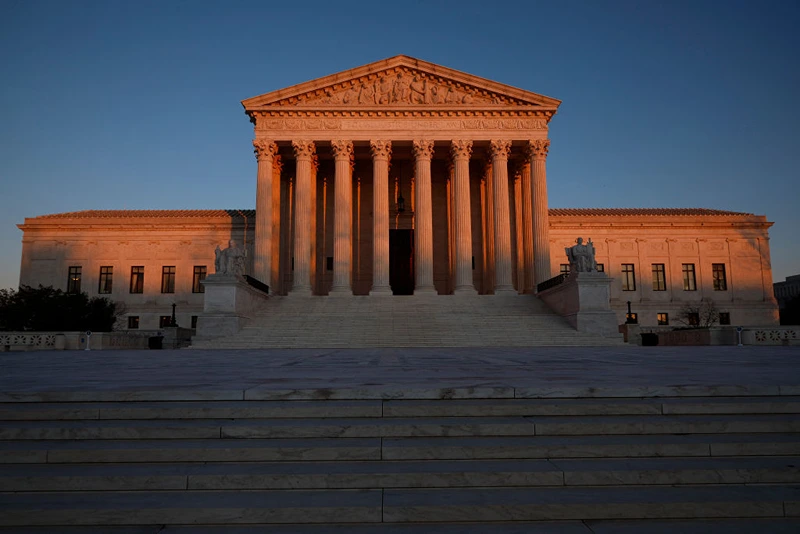

OAN’s Roy Francis
7:54 AM – Friday, June 30, 2023
The Supreme Court released a ruling on Friday in favor of the Colorado evangelical Christian web designer who had not wanted to be forced by the state to design websites for same-sex marriages.
Advertisement
The justices, 6-3, held that the First Amendment prevents the state from forcing Lorie Smith from designing a website that has a message she disagrees with. As a result of the ruling, Colorado cannot punish Smith under the state’s antidiscrimination law for refusing to work on the website.
“The First Amendment envisions the United States as a rich and complex place, where all persons are free to think and speak as they wish, not as the government demands,” Justice Neil Gorsuch wrote for the court.
Smith, a devout evangelical Christian who opposes same-sex marriage because of her religious beliefs, wanted to expand her website design business to include wedding websites, but did not want to create websites for same-sex marriages. However, Colorado’s public accommodation law prohibited businesses from “discriminating on protected characteristics.”
Smith then proceeded to sue the Colorado Civil Rights Commission and other officials because she did not want to be sanctioned under the state’s antidiscrimination law. In her suit she argued that as a creative professional, she has the right, under free speech, to refuse to undertake a project that conflicts with her religious beliefs.
Lower Courts had ruled against her, prompting her to present her case to the Supreme Court.
Many have compared Smith’s case to Jack Phillips, the Christian baker also from Colorado, who had refused to bake a wedding cake for a same-sexy couple. The Supreme Court had sided with Phillips in 2018.
Civil rights groups slammed Smith and her lawsuit, claiming that she was looking for a “license to discriminate” from the Supreme Court.
The three dissenting justices, Sonia Sotomayor, Elena Kagan, and Ketanji Brown Jackson said that the court’s decision allows the public to refuse service to “members of a protected class.”
“Today, the Court, for the first time in its history, grants a business open to the public a constitutional right to refuse to serve members of a protected class,” Sotomayor wrote.
In the majority opinion, Justice Gorsuch went on to explain that one of “our most cherished liberties” is the ability to think for ourselves.
“But, as this Court has long held, the opportunity to think for ourselves and to express those thoughts freely is among our most cherished liberties and part of what keeps our Republic strong,” he wrote. “Of course, abiding the Constitution’s commitment to the freedom of speech means all of us will encounter ideas we consider ‘unattractive.’”
Smith, like the baker Jack Phillips, was represented by Alliance Defending Freedom, a conservative Christian legal group.
Stay informed! Receive breaking news blasts directly to your inbox for free. Subscribe here. https://www.oann.com/alerts






Be the first to comment